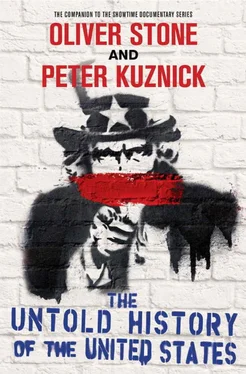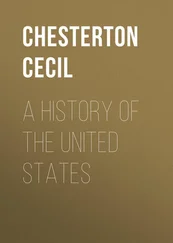Secretary of State John Hay called it “a splendid little war.” 31Not everyone thought the war so splendid. On June 15, 1898, the Anti-Imperialist League tried to block U.S. annexation of the Philippines and Puerto Rico. Its ranks included such prominent individuals as Andrew Carnegie, Clarence Darrow, Mark Twain, Jane Addams, William James, William Dean Howells, and Samuel Gompers. But anti-imperialists’ efforts were no match for a nation imbued with the glory of war and the thrill of easy victory in a righteous cause.
When the dust of war settled, the United States had secured the beginnings of an overseas empire, having annexed Hawaii and acquired Puerto Rico, Guam, and the Philippines from Spain. The Philippines were viewed as an ideal refueling stop for China-bound ships. After wavering about what to do with the islands, walking the White House floor night after night and praying to “Almighty God” for guidance, McKinley opted for annexation, seizing upon the opportunity to civilize one of the world’s “inferior” races, which Rudyard Kipling referred to as the “white man’s burden.” 32

Satirizing both the emerging American imperialism and the nation’s ongoing cruelties, this January 1899 Puck magazine cartoon depicts the Philippines, Hawaii, Puerto Rico, and Cuba as children being lectured to by Uncle Sam. In the back rows sit children reading books labeled with the names of various U.S. states. In the far corner of the room a Native American child holds his book upside down, while a Chinese child stands at the “Open Door.” In the upper left corner an African American is left the menial task of washing the classroom window. The blackboard reads, “The consent of the governed is a good thing in theory, but very rare in fact. —England has governed her colonies whether they consented or not. By not waiting for their consent she has greatly advanced the world’s civilization. —The U.S. must govern its new territories with or without their consent until they can govern themselves.”
Under the leadership of Emilio Aguinaldo, the Filipinos had been rebelling against Spanish rule for years, and they naively believed the United States would help them gain independence. They drafted a constitution and established a republic on January 23, 1899, with Aguinaldo as president. On February 4, U.S. forces opened fire in Manila. U.S. newspapers reported this as an unprovoked Filipino attack on unarmed U.S. soldiers in which 22 were killed and 125 to 200 wounded. Filipino losses were estimated in the thousands. Newspapers predicted that the attack would rally support for the imperial cause and ensure Senate approval of the bitterly contested treaty, according to which the United States was to pay Spain $20 million for the Philippines. The New York World observed that the United States was “suddenly, without warning, face to face with the actualities of empire…. To rule, we must conquer. To conquer, we must kill.” 33Pressure mounted on treaty opponents to support the troops. General Charles Grosvenor, a congressman from Ohio, declared, “They have fired on our flag. They have killed our soldiers. The blood of the slain cries from the ground for vengeance.” 34
The Chicago Tribune described the Senate debate as the bitterest contest “since the impeachment trial of Andy Johnson.” 35Senator George Frisbie Hoar of Massachusetts warned that the United States would become “a vulgar, commonplace empire founded upon physical force, controlling subject races and vassal states, in which one class must forever rule and the other classes must forever obey.” 36After much arm-twisting and assurances that this did not entail permanent U.S. control of the Philippines, the treaty was ratified by a margin of one vote over the two-thirds needed. Hoar later observed, the United States “crushed the Republic that the Philippine people had set up for themselves, deprived them of their independence, and established there, by American power, a Government in which the people have no part, against their will.” 37Senator Richard Pettigrew called the betrayal of Filipino independence “the greatest international crime of the century.” 38
Filipinos overwhelmingly supported the rebels and provided them food and shelter. The Americans, some of whom employed the tactics they had perfected fighting Native Americans, responded with extraordinary brutality. Following one ambush, General Lloyd Wheaton ordered all towns within a twelve-mile radius destroyed and all their inhabitants killed. When rebels surprised the Americans stationed at Balangiga on the island of Samar, killing fifty-four of the seventy-four men there, Colonel Jacob Smith ordered his troops to kill everyone over the age of ten and turn the island into “a howling wilderness.” 39Some of the soldiers happily obliged. One wrote home, “Our fighting blood was up, and we all wanted to kill ‘niggers.’ …This shooting human beings beats rabbit hunting all to pieces.” 40U.S. officers put hundreds of thousands into concentration camps.
One of the most vigorous backers of the U.S. takeover of the Philippines was Senator Albert Beveridge of Indiana. Beveridge visited the Philippines to get a firsthand look at the situation. The only senator to have actually visited the Philippines, his views were eagerly anticipated. He addressed a crowded Senate chamber in early January 1900, offering one of the most colorful, blunt, and chauvinistic defenses on record of U.S. imperial policy:
The Philippines are ours forever…. This island empire is the last land left in all the oceans…. Our largest trade henceforth must be with Asia. The Pacific is our ocean. More and more Europe will manufacture the most it needs, secure from its colonies the most it consumes. Where shall we turn for consumers of our surplus? Geography answers the question. China is our natural customer…. The Philippines give us a base at the door of all the East…. Most future wars will be conflicts for commerce. The power that rules the Pacific, therefore, is the power that rules the world. And, with the Philippines, that power is and will forever be the American Republic…. God… has marked the American people as His chosen nation to finally lead in the regeneration of the world. This is the divine mission of America, and it holds for us all the profit, all the glory, all the happiness possible to man. We are trustees of the world’s progress, guardians of its righteous peace. The judgment of the Master is upon us: “Ye have been faithful over a few things; I will make you ruler over many things.” 41
But for McKinley the real prize was the fabled China market, which Japan and the European powers had been carving into exclusive areas for investment. Fearing that the United States would be frozen out of the China market, Secretary of State John Hay issued his first “open-door” note in 1899, asking other nations to grant equal access to commercial activity in their spheres of influence. Although the responses were often ambiguous, Hay declared the following March that all had assented to the open-door principle. Chinese nationalists, however, resenting all foreign domination, sparked a massive uprising against foreign occupiers and their missionary allies. Five thousand U.S. troops joined those from Europe and Japan in suppressing the Boxer Rebellion.
Thus, the 1900 presidential election between McKinley and William Jennings Bryan took place with U.S. troops tied down in China, Cuba, and the Philippines. At the Democratic National Convention, Bryan defined the contest as a fight between “democracy on the one hand and plutocracy on the other,” and he launched into an impassioned attack on imperialism. In his booming baritone, he aligned his opposition to imperial conquest with the philosophies of Thomas Jefferson and Abraham Lincoln, quoting Jefferson: “If there be one principle more deeply rooted than any other in the mind of every American, it is that we should have nothing to do with conquest.” 42The voting public, by a narrow margin, seemed to at least acquiesce in the new imperial course laid out by McKinley and his advisors. Socialist Eugene Debs barely registered in the polls.
Читать дальше













